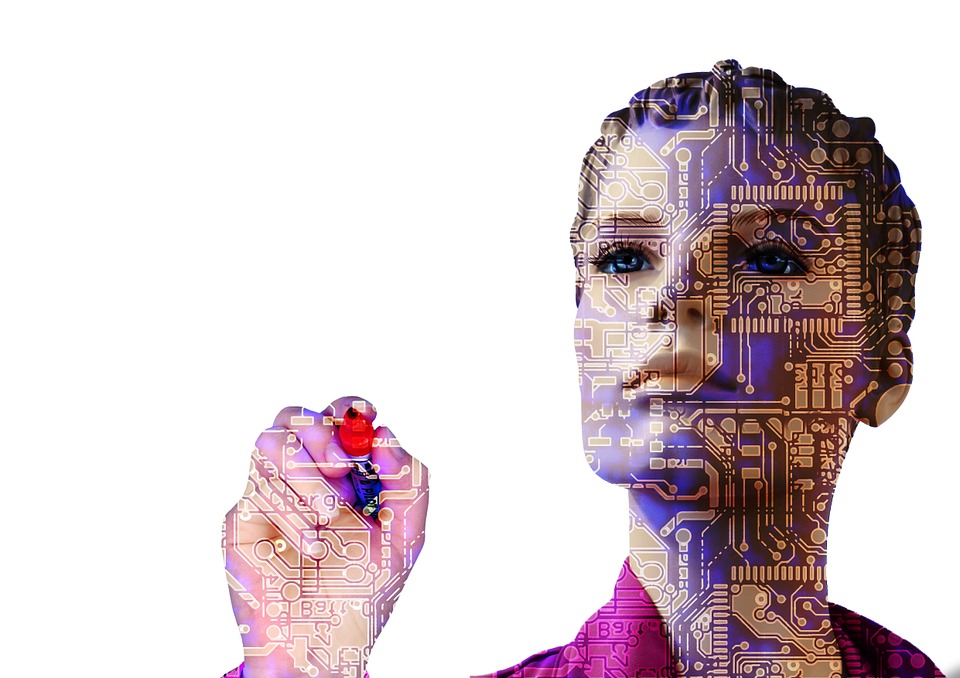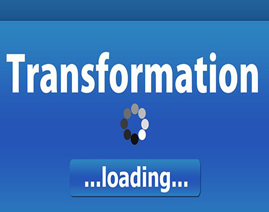Do we really need CEOs, CFOs, and CIOs?
Why CMOs and CTOs are all you need to succeed in today's world
This is my first article in a series of similar articles which I hope to publish into a book entitled "The Intelligent Enterprise: How to build a 21st century company"
Way back in 1954, Peter Drucker, the renowned management guru, wrote
Because the purpose of business is to create a customer, the business enterprise has two–and only two–basic functions: marketing and innovation. Marketing and innovation produce results; all the rest are costs. Marketing is the distinguishing, unique function of the business.”
The Practice of Management
Decades later, his words would prove to be truly prescient as the top companies that emerged from the information age were in fact marketing and innovation powerhouses, with Apple probably being the most iconic example. These companies now dominate the capital markets and have the largest valuations ever recorded in history. As of early 2020, there were several IT companies with valuations of $1 trillion or above, all of them paragons of Drucker's sage insight.
But then the question invariably arises - if all it really takes to succeed is marketing and innovation, why do we still pay so much attention to the CEOs, CFOs, CIOs, and all the other C-suite positions that have nothing to do with marketing or innovation? Indeed, if we examine each of these positions one by one, we can easily see that they serve no purpose in today's world, and will become completely redundant in the near future as automation and AI start to dominate business decision-making. Let's take a closer look, shall we?
CEO
Starting off with the granddaddy of them all, the CEO is often the face of the company, the one who gets all the media attention and stares from devoted fans. But if we take a look at what the CEO is tasked with doing, it's basically just glorified strategy and executive decision-making, mostly within sales and marketing. Well, couldn't the CMO just do that, and of course already does! If a CEO makes any decisions outside of those domains, then of course the CTO would slot right in, particularly when it comes to innovation, where the CTO would excel way beyond the CEO.
Some would argue that the CEO actually aggregates the information from all the departments and then makes a decision, but then you have to ask yourself if that's even humanly possible. With the massive amounts of information at hand (Big Data), does anyone really think a single person can make effective decisions at that scale? We all know the answer to that one. In fact, if we take a look at the Agile movement, the entire goal was to replace the project manager, a single person, with a team of people jointly deciding how the work should be scheduled and completed. Why can't we do that in the C-suite, with the CMO and CTO jointly making those strategic decisions. And don't get me started on the board! From my experience, the board has no skin in the game, and if you don't really get your hands dirty, you have no business running a business.
CFO
If we take a look at the financial side of things, the reality is that all that stuff is in an accounting and ERP system already, and is purely mathematical in nature. It doesn't take a genius to figure out that financial processes can be easily automated, and with all the emergent deeptech such as deep learning becoming more commonplace, we can expect strategic financial decisions to be made by an AI, with far better predictive and prescriptive models than any human could come up with given the amount of data at hand. We already have fraud detection systems in place doing the bulk of the financial monitoring we need, and these systems will only continue to improve over time. Again, the reality is that finance and accounting are completely automatable, and there is absolutely no need for a CFO, at least from my perspective. In fact, in my experience, CFOs are more a liability than anything else, with many being completely digitally illiterate (see below), thus exposing the company to cyberattacks and the like.
CIO
Finally, we come to the CIO, the techie often responsible for maintaining production systems and brownfield/legacy apps. Well, here's another redundant position due to DevOps. The reality is that as developers and system admins work closer together than ever before, and as a lot of these systems are being migrated to the cloud, even the venerable AS400, we don't need somebody just trying to aggregate all that together. With all this virtualization/containerizatio
Well, I hope I've convinced some of you that these positions are no longer necessary. For those holdouts out there, I invite you to wait a few years and see how CMOs and CTOs continue to grow in prominence . I've outlined 3 core competencies that companies will need for the next few decades, and CMO's and CTO's will be leading that charge:
- Human literacy - understanding behavioral psychology and economics, empathy, team formation and cohesion, recruitment/retention, etc. We will use KCI's (Key Caring Indicators) to measure our success in this dimension of our business. I'll be discussing KCI's in my next article, so watch out for it!
- Data literacy - We already are bombarded with this stuff daily, given the rise of Data Science and IR4. Typically, we hand off the responsibilities of managing our data infrastructure to a CDO (Chief Data Officer), but the reality is that this would fall under DevOps (DataOps to be more precise), so the CDO would go the way of the dodo as well. So what does this mean? Well, it means that both the CMO and CTO would have to become data literate, but specializing in different aspects of the business as noted (marketing and innovation). The CMO would oversee the marketing analytics side of the business, and the CTO would oversee the technical analytics side of the business (uptime, performance, latency - APM basically). So, math and statistics, operations management, and machine learning would have to be second nature to both the CMO and CTO, and they would just add it to their repertoire. BTW, this type of literacy subsumes mathematical numeracy.
- Digital/Technical literacy - Being technically/digitally literate is the most important skill of the 21st century, IMHO. In my storied 20+ year career in IT, I've seen too many f**ckups due to a lack of this type of literacy. While tooling no doubt plays a big role here, having a deep grounding in what technology really is and how to properly automate and standardize processes is far more important. Tools change, and technologies evolve, but a fundamental understanding of IT and information theory in general is necessary to adopt the right technologies for your business, and more importantly, to strategically grow it.
You May Also Like

Install These Free Security Tools Now!
Have you heard of intrusion detection systems? Also known as IDS, this software is often used to det...

Crowdfunding drives unprecedented efficiency
Crowdfunding has become the center of attention in the field of financing. It is also an increasingl...

Everything As a Service
Transition from Capex economy to Opex Economy World is in a transition from Macro to Micro. Granula...

IoT in Malaysia – 2019 Predictions
The year 2014 is when Malaysians started to Google the term “IoT” and ever since, the hy...

The business case for 5G
As of 2018 ,33 MNOs have been involved in 5G trials within Asia Pacific, accounting for 44% of 77 tr...

A New Face On Digital Transformation: Engagement Innovation
Whether we believe it or not we are in the fourth industrial revolution – The Digital Revoluti...

Technology & Competitive Data Analysis More Money – More Competition; everyone wins
Technology & Competition – More Money, Better Deal for Consumers & Companies – H...

Anatomy of Fintechs that’s redefining Financial services business models.
On a weekend in 2013 during monsoon I invited my friend and his family for a dinner at my place. It ...

Blockchain Taxation
World has paid a heavy price for trust, transparency, controls and accountability. Globally there i...

Why Is CDR / CDNR So Important?
Addressing the Fundamental Deficiency in Today’s Mainstream Cyber Security Strategies From Det...

CIO Business leadership - shifting from tech to business leadership
CIOs are no longer technocrats, they are business enablers and crucial part of organisation. CIOs sh...

Ideas and Opinions | 5G as an Enabler of Smart Cities
When 5G comes to mind these days, we think of “is this REALLY it?” and “have we re...

Lessons in Machine Learning
More organizations are using machine learning for competitive reasons, but their results are mixed. ...

Digital Indoor System: Critical Infrastructure for Digital Economic Transformation
Digital Indoor System: Critical Infrastructure for Digital Economic Transformation Developme...

The Changing DNA of the CIO CIO as Business Enabler
The idea that the role of the CIO has now gone beyond technology and innovation related issues, and ...

Today's Digital Miners
Today's Digital Miners I guess by now everyone of us who have read an article or two on digital...

Digital Transformation Readiness Test for Banks
Digital Transformation Readiness Test for Banks The questions banks need to try to answer to test ...

What is Machine Learning
What is Machine Learning? According to Tom Mitchell, a professor at Carnegie Mellon University has d...

Transformation of industry verticals through 5G – Focus and Look Indoors
Transformation of industry verticals through 5G – Focus and Look Indoors Now that 5G is...

Humanize Technology - back to the basics of serving human needs, humanly
Humanize Technology - back to the basics of serving human needs, humanly The subjects of Digital Tr...

Creating the foundation for Sustainable Innovation
Creating the foundation for Sustainable Innovation In 2011, Marc Andreessen famously proclaimed tha...

About Tech Data Diversity And Inclusion
About Tech Data Diversity And Inclusion I am excited about attending the Hispanic IT Executive Coun...

Digital Transformation: Customer Centricity & Intimacy
Digital Transformation: Customer Centricity & Intimacy It was inspiring listening to IMD Profess...

Is Industry 5.0 putting humans back in the center
Industry 4.0 focused on the machines. Is Industry 5.0 putting humans back in the center? I was on a...

Importance of IT Resilience
Importance of IT Resilience Disclaimer: The posting written here is solely of my own comment and ...

Implementing a SaaS Solution – The 3 Major Technical Challenges
So when are you planning to implement a SaaS (Software as a Service) solution? Very soon, if not alr...

So you want an #Innovation Hub?
Innovation, Design Thinking, Digital, Disruption, Agile, Transformation - these are new buzz words t...

The Unsung Hero; The Data Scientist
It is quite likely you are wondering ‘what on earth’ am I on - for cooking up such a tit...

How POC projects made me a better Project Manager
How did I get here? Project Management is a tough job. We need to keep a track on budgets, timeline...

How Data and AI can help in COVID-19 crisis
Since the first report of coronavirus (COVID-19) in Wuhan, China, it has spread to at least 100 othe...

Building thriving business partnerships with Open API
Apple and Google recently collaborated to assist in enabling contact tracing and reducing the spread...

The Future of Indoors with Digital Indoor Systems
Digital Transformation, 5G, and COVID-19 have triggered further growth in indoor traffic Digital tr...

Seizing Opportunities in the ICT Sector
The Increased Pace of Digital Transformation Automation, digitalisation, artificial intelligence (A...

CoVID19, Digital, ML
CoVid19 hit us and has now created the “new Normal” in terms WFH, Video conferences, bal...

Cinématographe by the Lumière Brothers & History of AI
The Lumière brothers, Auguste and Louis, French inventors and the pioneer manufacturers...

Avenues To Expedite The Incorporation Of 5G Into Industry
5G has been launched in Asia Pacific. South Korea, China, the Philippines and other countries have b...

4G/5G Fixed Wireless Access: A Critical Revenue Growth Engine
In studying key success factors of solutions, it can almost always be shown that the underlying conc...

Big Data Machine Learning IoT and PI
In the era of the Internet of Things (IoT), an enormous amount of sensing devices collect and genera...

Asia’s Plan To Leverage 5G Is Missing A Regional Strategy
The day the world’s first commercial 5G services promised a “great leap” is still ...

Learning from #COVID19…Would remote working be the new normal?
Musings of a Technology Evangelist In the past few months, we have all learnt many new terms&hellip...

Principles of Sustainable Cybersecurity
In past few years the annual rate of cybersecurity breaches has almost been doubled, and as a result...

Data Governance a key element for Digital Transformation
For the last few years, corporate environment, used to speak and hear lots of financial/management t...

Seven Traits of a Millennial CEO
With a staff strength and annual turnover in the order of billions and trillions respectively, Chris...

What is a Pass Key and Is Now the Time To Adopt Them?
What is a Pass Key and Is Now the Time To Adopt Them? There has been recent news about a mass...








Tarun Sukhani
CTO | Abundent Sdn Bhd
Tarun Sukhani is a software industry veteran and an internationally sought after speaker/presenter on modern software development topics such as Agile, Cloud Computing, Blockchain, Big Data, Data Science, and AI/Machine Learning/Deep Learning. With more than 20 years of experience, he has been a board member, senior executive, architect, and developer across a range of verticals throughout his career. Tarun has also been involved in entrepreneurship and academia, founding 4 companies in Malaysia and lecturing at a number of local and international universities. Tarun currently heads up Abundent, a Digital Transformation and Big Data Analytics company based in Kuala Lumpur with branch offices in Singapore, Indonesia, and the US.